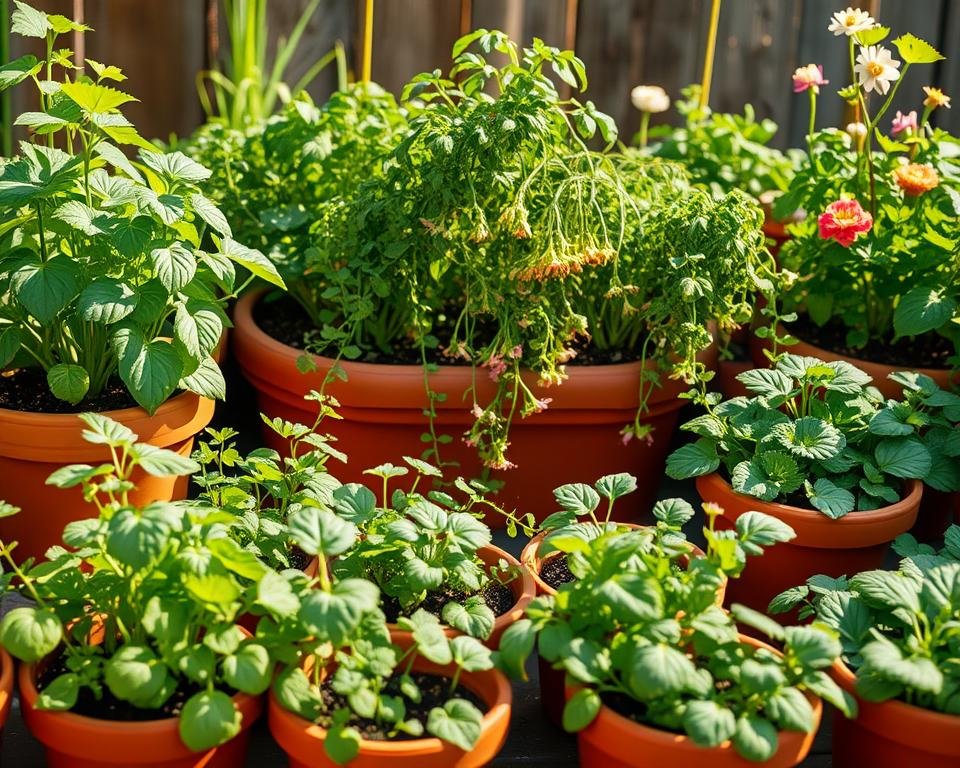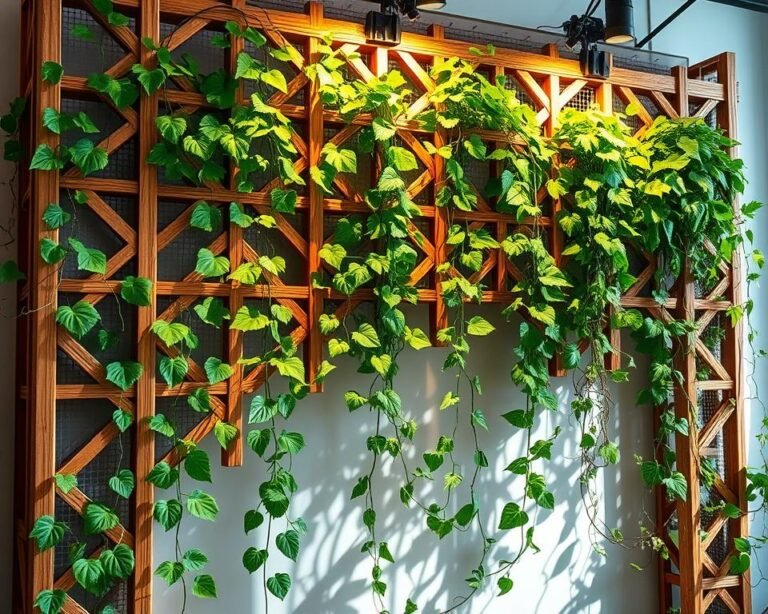Organic Gardening Methods for a Healthier Container Garden
Every garden starts with a dream. Container gardening gives you a special place to make that dream real. It’s perfect for growing herbs on a small balcony or veggies in a tiny urban spot. Organic gardening methods turns your container garden into a lively, healthy space.
Container gardening is great for city folks and gardening lovers. It lets you make a small, green oasis that’s good for you and the planet. Studies show organic container gardens can grow up to 25% more food than regular gardens.
Choosing organic gardening helps you grow healthy food and protects our planet. More and more city gardeners, 65%, are going organic for its green benefits.
Key Takeaways
- Container gardening offers flexibility for small spaces
- Organic methods reduce chemical pesticide use by 90%
- Urban gardens can significantly increase produce yields
- Sustainable gardening supports environmental health
- Organic techniques improve overall plant and soil vitality
- Container gardens can be managed with less maintenance time
Essential Non-Toxic Container Selection Guide
Choosing the right containers is key for a safe and sustainable organic garden. The containers you pick can greatly affect your plants’ health and the quality of your food. Organic container gardening means picking materials that support a natural growing space.
Not all containers are safe. Some can release harmful chemicals into your soil, harming your garden’s organic nature. Stay away from recycled items like old tires, painted containers, or wooden pallets. These might have toxic substances.
Best Materials for Organic Gardens
For your organic garden, choose these safe containers:
- Food-grade ceramic pots
- Natural terracotta containers
- Coconut coir planters
- Untreated wood containers
- Food-safe fabric grow bags
Safe Plastic Options and Resin Codes
It’s important to know about plastic resin codes for safe containers. Look for these specific codes:
| Resin Code | Safety Level |
|---|---|
| HDPE (#2) | Highly recommended for organic gardening |
| PP (#5) | Generally safe for food production |
Natural Container Alternatives
Check out these sustainable container options for your organic garden:
- Bamboo fiber pots – Biodegradable and eco-friendly
- Coconut fiber containers – Made from agricultural waste
- Vertical gardening systems with food-grade materials
“The container you choose is the foundation of your organic garden’s success.” – Organic Gardening Expert
By picking non-toxic, sustainable containers, you’ll make a healthy space for your plants. This ensures the purest organic harvest possible.
Creating the Perfect Organic Soil Mix
Making a great soil mix is key to good container gardening. Your plants need a mix that’s full of nutrients. This mix helps roots grow strong and supports healthy plants.
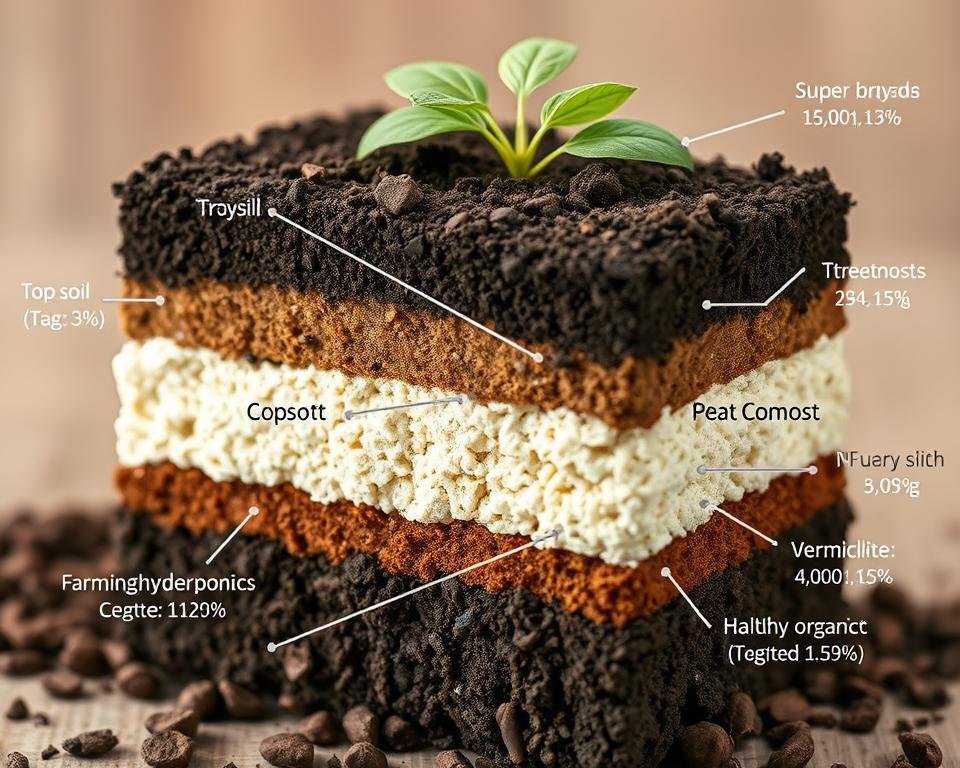
To enrich soil, you need to know what to add. Container gardens need special soil because space is limited. Every nutrient is important.
Balanced Soil Components
Your perfect organic potting mix should have:
- Homemade compost (40%)
- Peat moss or coco coir (30%)
- Perlite or vermiculite (30%)
DIY Organic Potting Mix Recipes
Make nutrient-rich soil by layering ingredients. Vermicomposting is great for making worm castings. These castings are full of nitrogen, phosphorus, and potassium, which plants love.
“Adding organic matter is the best way to improve nearly all kinds of soils.” – Organic Gardening Expert
Soil Enrichment Techniques
Boost your garden with these methods:
- Bokashi fermentation for kitchen waste composting
- Chop-and-drop mulching to recycle nutrients
- Cover crop integration to fix nitrogen
Turn your compost pile every two weeks and keep it at the right temperature. These steps will help your plants thrive in containers.
Organic Gardening Methods for Container Success
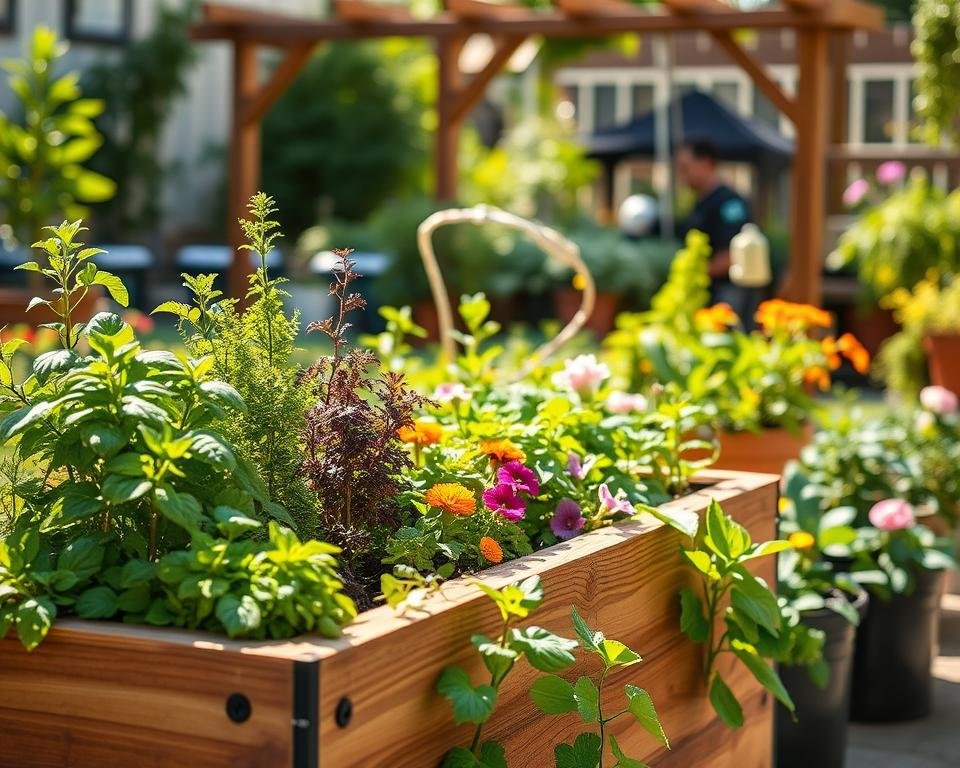
Container gardening is great for growing plants in small spaces. It works well with organic gardening methods. These methods help plants grow strong and soil stay healthy.
Biodynamic farming makes your container garden a thriving place. It focuses on caring for plants in a holistic way. This approach helps plants grow naturally and reach their full potential.
- Practice crop rotation within containers to prevent nutrient depletion
- Use companion planting to enhance plant health and deter pests
- Implement natural fertilization techniques
- Adopt water conservation strategies
Picking the right container is key for organic gardening. Choose materials that support plant health and sustainability. Terra cotta, ceramic, and recycled containers are good choices. They help plants grow well and are kind to the environment.
Soil quality is the base of a good container garden. Use high-quality organic potting mix. It’s full of nutrients and good for plants, without harmful additives.
Organic gardening is about working with nature, not against it.
Container gardens can be very productive with the right care. By knowing what plants need and creating balanced ecosystems, you can grow healthy plants. They will thrive in small spaces.
Natural Watering and Drainage Solutions
Container gardening needs smart water management to keep plants healthy. Learning about natural drainage and water saving can make your garden flourish.
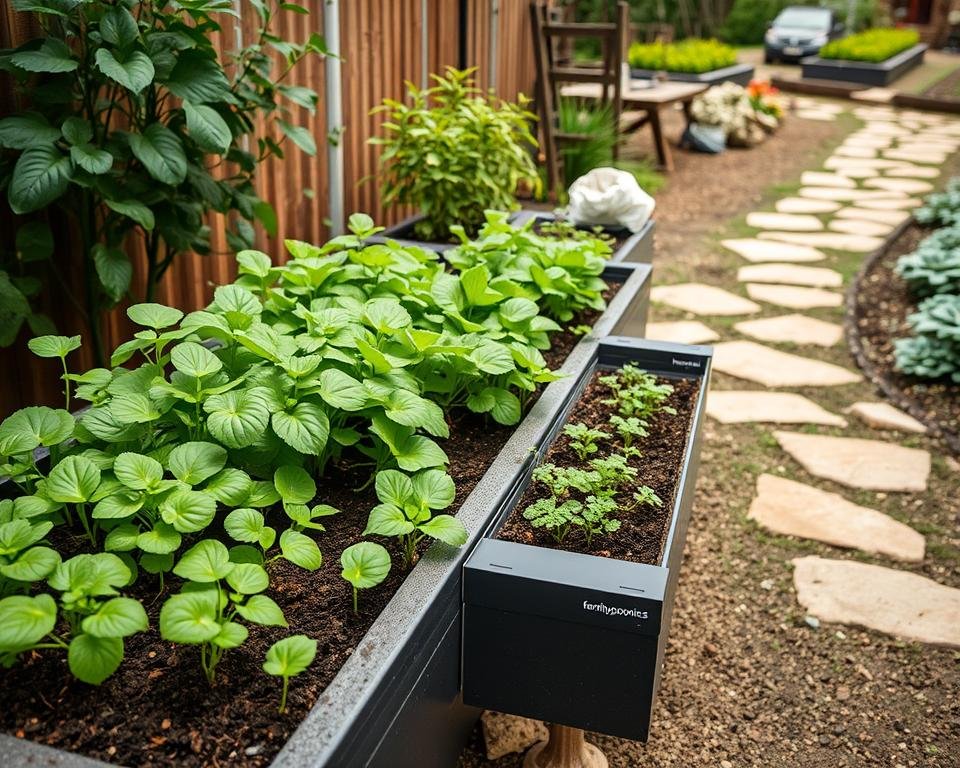
Water is key for any garden, but it’s hard to manage. Your container garden needs a smart watering plan. This plan should save water and still feed your plants.
Water Conservation Techniques
- Collect rainwater using rain barrels placed under downspouts
- Use mulch to keep soil moist and cut down on evaporation
- Pick water-saving native plants that fit your local weather
“Smart water management turns gardening challenges into sustainable opportunities.”
Proper Drainage Setup
Good drainage stops waterlogging and root rot. Try these natural methods:
- Put permeable stuff like gravel at the bottom of containers
- Drill small holes in containers for drainage
- Put containers up to boost air flow
Moisture Management Tips
Keep moisture steady without too much water. Each plant and container is different, needing its own watering schedule.
Check soil moisture with your finger. Soil should be a bit damp but not wet.
Sustainable Fertilization Practices
Container gardening needs careful nutrient management. Your organic gardening methods can improve plant nutrition and reduce environmental harm. Organic fertilizers offer a balanced way to feed your plants without synthetic chemicals.
Knowing about nutrient dynamics is key for container gardening success. Organic fertilization includes several important strategies:
- Slow-release organic fertilizers provide consistent nutrition
- Compost techniques enhance soil microbiome health
- Natural nutrient sources support robust plant growth
Vermicompost is a strong organic fertilization choice. Studies show it can match or beat synthetic fertilizers in plant yield and health. A 2020 research highlighted its potential to reduce pest incidents while improving overall plant vitality.
Here are some organic fertilizer options for your container garden:
- Fish emulsion: Quick nutrient boost for leafy vegetables
- Bone meal: Rich in calcium and phosphorus
- Seaweed extract: Contains natural growth hormones
- Compost tea: Enhances microbial activity
Experts recommend using organic fertilizers once or twice in the growing season. This avoids over-fertilizing, which can harm plants and disrupt nutrient absorption. Organic gardening methods help create a balanced ecosystem for your container plants.
Natural Pest Control Strategies
Keeping your container garden safe from pests needs a smart plan. Integrated Pest Management (IPM) helps you watch and manage pests. It’s best to act fast when you see 20% of leaves eaten or 15% of plants damaged.
Companion planting is a key tool against pests. By placing certain plants together, you make a garden that keeps pests away. For example, dill, coriander, and alyssum attract ladybugs that eat up to 50 aphids a day. Heirloom seeds often have natural defenses against pests, cutting down on the need for chemicals.
Organic pest control has many options for gardeners. Neem oil is great against over 200 pests, like aphids and mites. A simple dish soap mix can handle smaller infestations. You can also use beneficial nematodes or physical barriers to protect your plants without harming them.
Your garden’s health depends on using these natural pest control methods. Keep an eye on your garden, plant a variety of things, and use organic solutions. Always try to prevent problems by growing strong, healthy plants.

